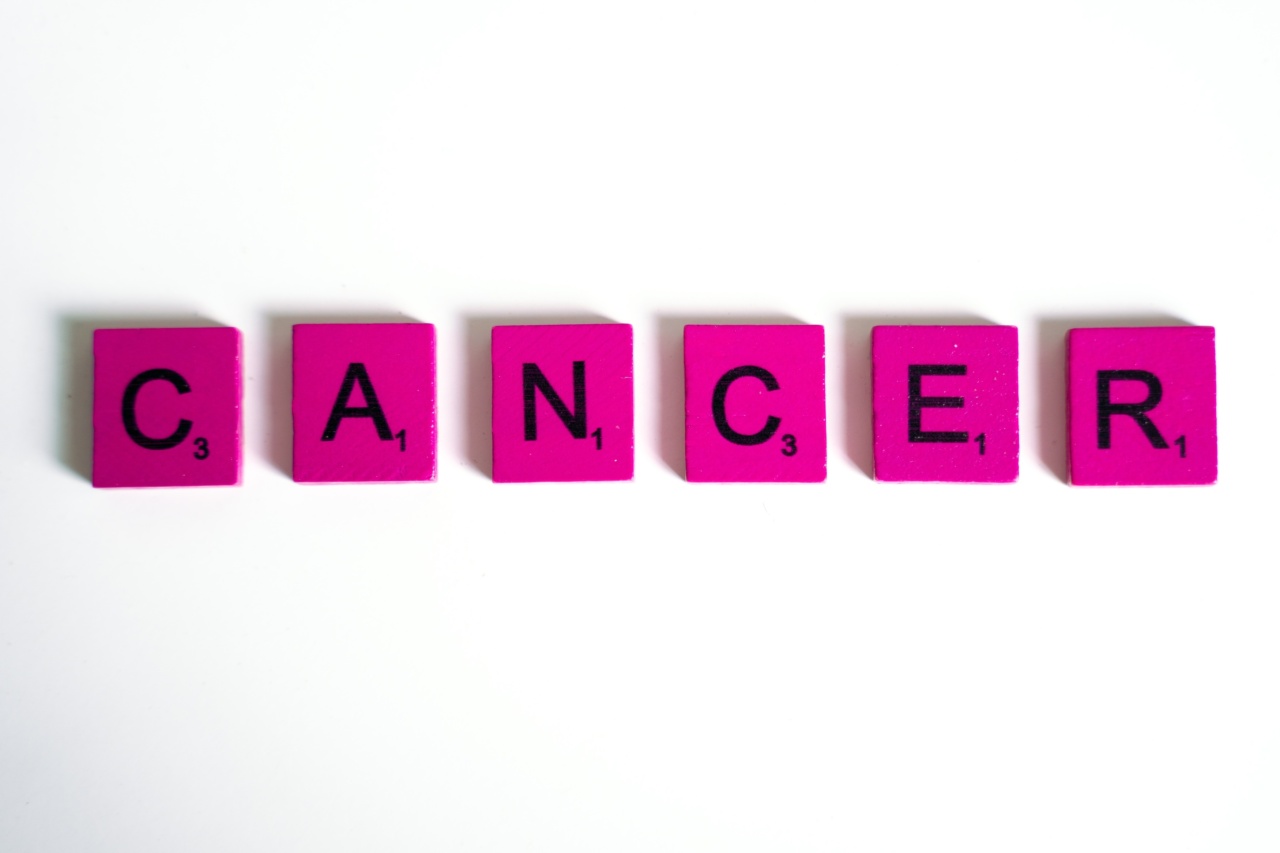When it comes to our health, it’s always better to be safe than sorry. Recognizing the early signs of cancer can significantly improve our chances of successful treatment and recovery.
While some symptoms may be more obvious, there are also subtle signs that should never be ignored. In this article, we will delve into some of these subtle signs that could potentially indicate the presence of cancer. Remember, early detection can make all the difference in the battle against cancer.
1. Persistent Fatigue
Feeling tired after a long day or a lack of sleep is normal, but if you find yourself constantly fatigued despite getting enough rest, it could be a sign of an underlying health issue, including cancer.
Persistent fatigue is often associated with various types of cancer, such as leukemia, colon, or stomach cancer. If your fatigue is accompanied by other symptoms like unexplained weight loss or pain, consult a healthcare professional for a thorough evaluation.
2. Unexplained Weight Loss
Unintended weight loss without any changes in diet or physical activity may seem like a blessing to some, but it can be a red flag for cancer.
When cancer cells start to grow and spread in the body, they can alter the way it processes nutrients and cause unexpected weight loss. If you notice a significant decrease in weight without trying, consider discussing it with your doctor to rule out any potential underlying causes, including cancer.
3. Changes in the Skin
Our skin can sometimes give us valuable clues about our overall health. Changes in skin appearance, such as moles, lumps, or discoloration, should never be ignored.
Irregular borders, size changes, or any sudden growth should be examined by a dermatologist to rule out skin cancer. Additionally, any open sores that take longer to heal might indicate a form of skin cancer as well.
4. Persistent Indigestion or Difficulty Swallowing
If you frequently experience indigestion or find it difficult to swallow, it’s essential to pay attention to these symptoms. Persistent indigestion or heartburn could potentially be a sign of esophageal, gastric, or throat cancer.
Difficulty swallowing, especially solid foods, may indicate the presence of a tumor obstructing the throat or esophagus. The longer these symptoms persist, the more important it becomes to seek medical advice.
5. Chronic Pain
Ongoing pain that doesn’t seem to have an obvious cause or doesn’t respond to treatment could be a warning sign of cancer. Cancer-related pain can occur due to the tumor pressing on nerves, organs, or bones.
Different types of cancer can result in various forms of pain, ranging from localized discomfort to persistent headaches. If you experience chronic pain that doesn’t improve, it’s worth consulting with a healthcare professional.
6. Changes in Bowel or Bladder Habits
Changes in bowel or bladder habits that persist over time should never be ignored. This includes persistent diarrhea or constipation, blood in the stool or urine, frequent urination, or sudden urgency to use the bathroom.
While these changes can have various causes, they can also be indicative of colorectal, bladder, or prostate cancer. It’s vital to discuss these changes with your doctor, who can determine the appropriate tests to diagnose or rule out cancer.
7. Persistent Cough or Hoarseness
If you have a persistent cough or hoarseness that lasts for several weeks without any improvement, it’s crucial to have it evaluated by a healthcare professional. Chronic coughs and hoarseness can be symptoms of lung, throat, or larynx cancer.
While there are several other potential causes, it’s important to rule out cancer to ensure timely intervention and treatment if necessary.
8. Changes in Breast or Testicles
Regular self-examinations are essential for both men and women. Any changes in the breasts, such as lumps, nipple discharge, or changes in size or shape, should be reported to a healthcare professional.
These changes could indicate breast cancer, which is not limited to women but can also affect men. Likewise, men should be aware of any changes in their testicles, such as lumps, swelling, or pain, which might be signs of testicular cancer.
9. Chronic Fatigue and Pale Complexion
Chronic fatigue accompanied by a pale complexion may be an indication of blood-related cancers like leukemia or lymphoma. Cancer can cause a decrease in red blood cells, leading to anemia, resulting in exhaustion and paleness.
It’s essential to consult with a healthcare professional if you experience prolonged fatigue along with a noticeably pale appearance.
10. Ongoing Infections
Repeated infections or infections that take longer to resolve might be a sign of an impaired immune system, which can sometimes be associated with certain types of cancer, such as lymphoma or leukemia.
If you find yourself frequently falling ill, it is recommended to seek medical advice to investigate the underlying cause.
Conclusion
While the presence of these symptoms does not necessarily indicate cancer, they should not be overlooked. Identifying these subtle signs early on can potentially lead to early cancer detection, leading to more effective treatments and improved outcomes.
If any of these symptoms persist or worsen over time, it is essential to consult a healthcare professional for proper evaluation and guidance.



























